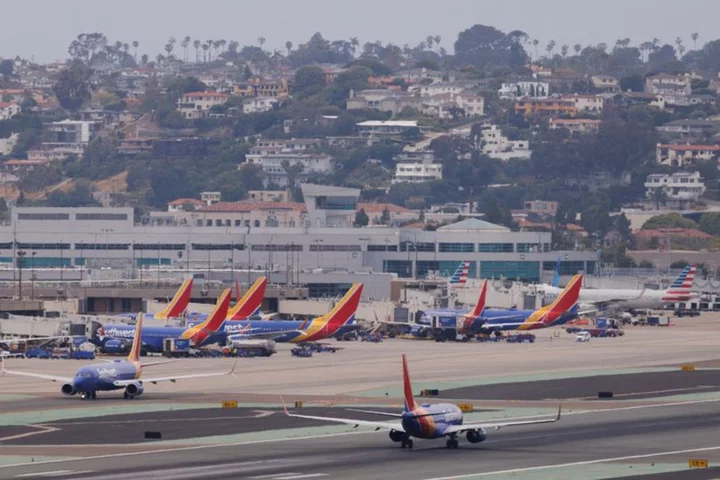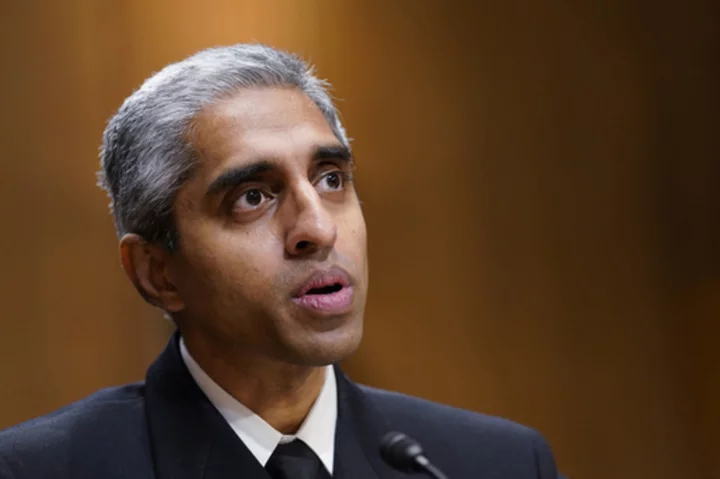By Rajesh Kumar Singh
CHICAGO Andrew Watterson knows the cost of flight disruptions.
The chief operating officer of Southwest Airlines found himself in the eye of a storm after a blizzard last December forced the company to cancel almost 17,000 flights, disrupting travel plans for about 2 million customers.
With this week's U.S. Thanksgiving holiday kicking off the holiday travel season, Watterson can ill afford another fiasco. His counterparts at other carriers are also under pressure to deliver a smooth operation in a period when passenger traffic is expected to hit all-time highs.
Airlines have taken measures to beef up winter operations including investments in weather forecast technology and de-icing equipment, and increased staffing and training.
The high-profile operational meltdown cost Southwest more than $1 billion and prompted scrutiny from U.S. Congress and other government agencies. Watterson himself faced criticism from U.S. lawmakers for the debacle.
However, in an interview with Reuters, the executive cited Southwest's technology upgrades and investments made since the Dallas-based carrier's meltdown to help deal with any weather event this year.
"We are now so much better prepared," he said.
The expected record travel comes at a time when airlines are grappling with a shortage of air-traffic controllers, congested airspace and limitations on runways and airport gates, forcing many companies to cut flights.
Southwest attributed its service breakdown last Christmas to a "historic" winter storm, both in size and scale, that caused frozen jet bridges and icy aircraft engines. Its problems, however, were compounded by a dated system for scheduling of crews.
To make its winter operations more resilient, Watterson said Southwest invested in de-icing trucks and de-icing pads across its network. It also spent the summer training its ramp agents for frost and cold temperatures, and increased staff at airports in colder climates.
The airline has especially focused on operations in Denver and Chicago, where one-fourth of its crews are based. Both cities were badly hit by the storm last year.
To streamline communication and decision-making, it has consolidated the teams that design flight schedules and oversee operations. Southwest has also rolled out a new technology to manage large-scale flight disruptions.
Southwest is facing a civil fine from the U.S. Transportation Department for last year. Watterson acknowledged the company fell short, but touted subsequent improvements in operational performance.
He said the percentage of Southwest's scheduled flights that are not canceled is at a 10-year high. And the company handled a snowstorm in Denver last month with few problems.
"To me, that was our pre-season game," Watterson said.
Last year's meltdown led to a dip in Southwest's ticket sales in early 2023, but customers have forgiven the company as bookings for this December are stronger than last year.
MINIMIZING CANCELLATIONS
The holiday disruptions have also prompted reviews at other airlines.
Alaska Airlines, for example, is trying to get better equipped in handling weather at its key Seattle hub.
Chief Operating Officer Constance von Muehlen said in an interview that the company has teamed with meteorologists at the University of Washington to obtain localized weather forecast for improved predictability. It has doubled the available space to de-ice planes.
Alaska also capped the number of departures per hour out of Seattle to minimize cancellations.
Similarly, United Airlines has cut flights out of Newark, New Jersey, to minimize delays. American Airlines is leaning on technology to recover faster from large-scale disruptions, COO David Seymour said in an interview.
Delta has said its operational performance has been strong heading into the holiday season and it is better placed in terms of crew availability.
Carriers' performance this year has been encouraging, with flight cancellations down to just 1.4%, according to data from the FlightAware website.
The Federal Aviation Administration (FAA) earlier this month told U.S. Congress that airlines are better staffed and prepared for this year's holiday rush.
But weather is always unpredictable.
"We never quite know when the weather will hit us," von Muehlen said. "But, obviously, it's most impactful when it's during the holiday."
(Reporting by Rajesh Kumar Singh in Chicago; Additional reporting by Doyinsola Oladipo in New York and David Shepardson in Washington; Editing by Ben Klayman and Matthew Lewis)









